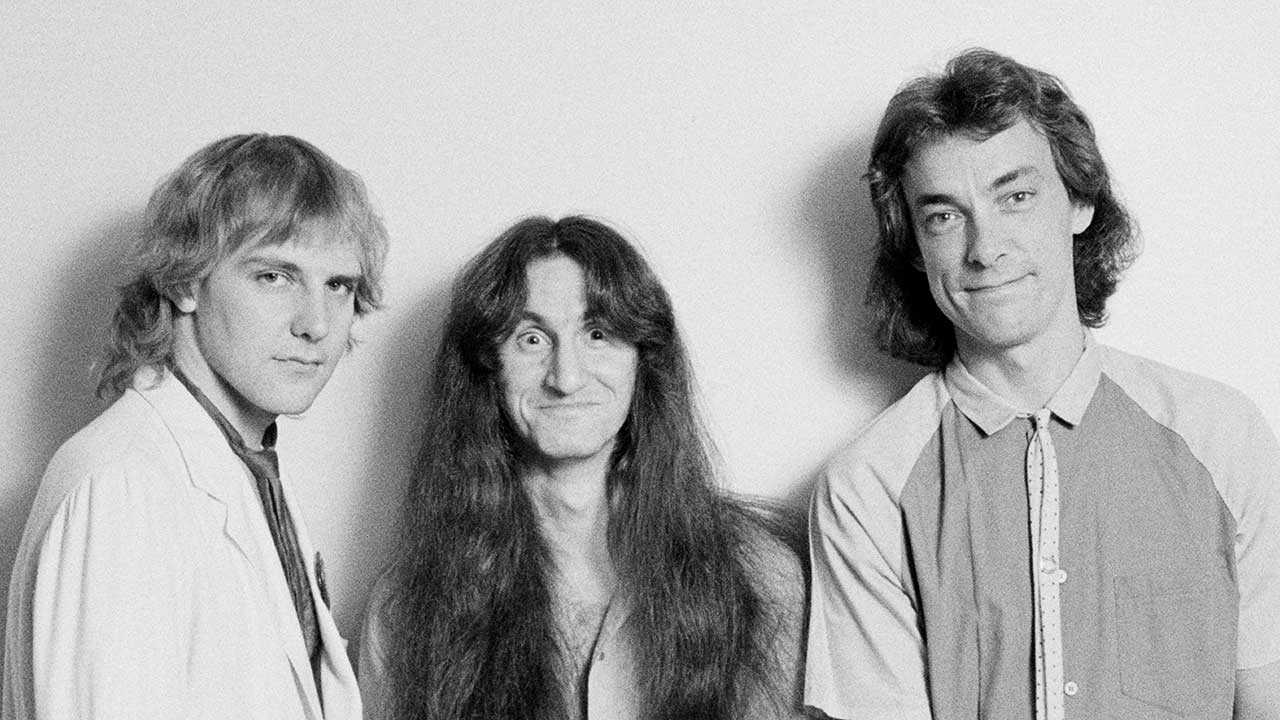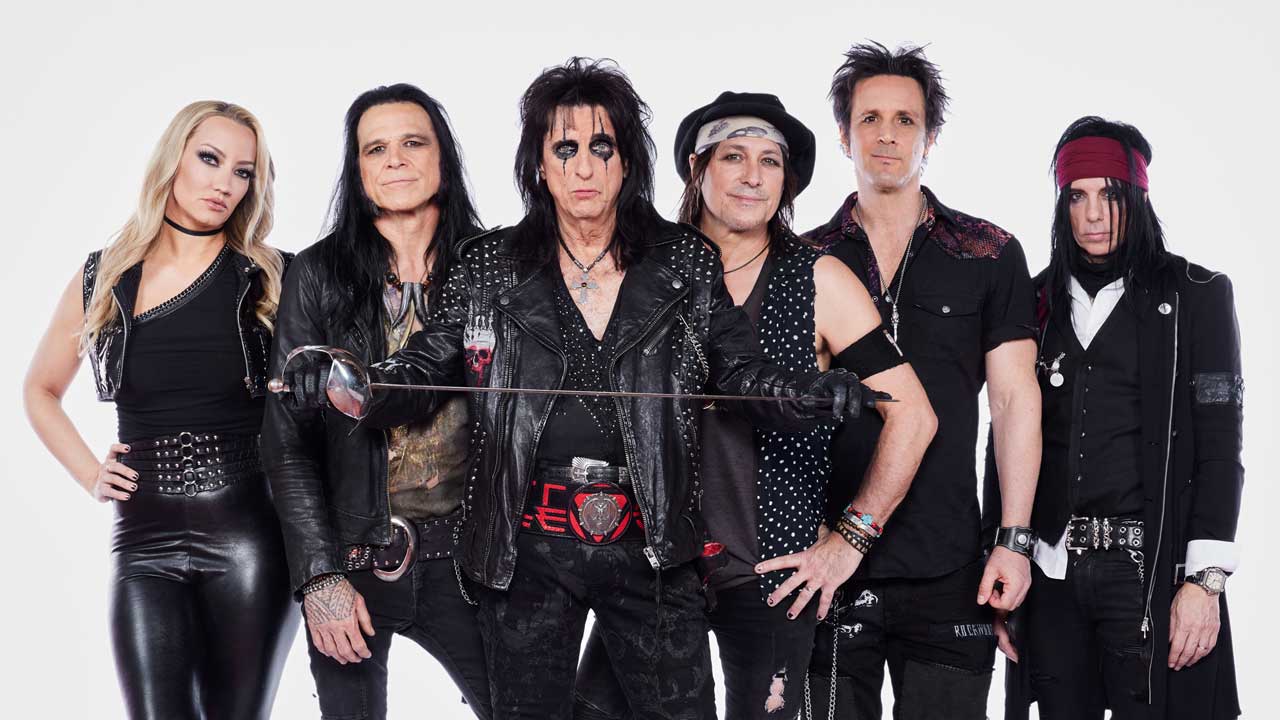The story behind The Spirit Of Radio by Rush
Written as a statement about the demise of radio's sense of adventure, Rush's classic The Spirit Of Radio was a surprise hit. And it's "fun to play" says Alex Lifeson

Over the years, many established bands have attempted to update their sound. But doing so isn’t easy. Some manage their sonic make-over successfully, while others fail miserably and, at the behest of disgruntled fans, go back their roots.
Rush were one of the few bands that managed to pull it off. Perhaps it was because they didn’t use the hope of crossover chart success as a major motivating factor. Instead it was a more natural process, and also reflected the music they were listening to at the time (The Police, Talking Heads etc).
Rush’s stylistic change can be traced back directly to the Canadian trio’s classic 1980 album Permanent Waves, and more succinctly to its opening track, The Spirit Of Radio.
Up until that point, Rush were best-known for their lengthy, sprawling epics, often with sci-fi lyrics. Rush guitarist Alex Lifeson remembers a conscious decision by him and his bandmates – bassist/singer Geddy Lee and drummer Neil Peart – to depart from this style, from both a musical and lyrical standpoint: “I think that was a time when we made a concerted effort to move away from the long thematic songs, especially the full-side songs – albums like Hemispheres – into something shorter. Although there are a couple of long tracks on that record – Natural Science is pretty long.”
The group also decided to record their first album of the 80s at a studio close to home. “The first time at Le Studio. We had a great time there. It was in such a great part of Quebec, up north, a really great studio, very cosy.”
When asked about any specific memories of recording the track The Spirit Of Radio, Lifeson recalls taking an unorthodox approach: “I’m sure we did it in the control room, because that’s how we worked: on a stool, sitting behind Paul Northfield, who engineered the record, with Terry [Brown, producer] there, giving Paul a kick in the back of his chair every so often when he drifted away [laughs].”
Peart wrote the lyrics on that record, as he did (with rare exceptions) on all Rush albums from 1974’s Fly By Night onwards, but Lifeson offers some insight into the meaning of the lyrics on …Radio: “That song was really a statement of where radio was going, where it had been. Growing up in the early 70s, FM radio was such a free forum for music; you’d have DJs who would play stuff for an hour. They’d just talk about the songs; there were no commercials or anything.
Sign up below to get the latest from Classic Rock, plus exclusive special offers, direct to your inbox!
"So free-form, really a platform for expanding music at the time. And then it was moving more towards a format, and away from that freedom, becoming more regulated, more about selling airtime. It just speaks about that, really.”
Lifeson also points out where the song’s title came from: “I think that was a common motto for radio stations at the time. Like, you’d hear [speaks in a DJ voice] ‘The Edge, 102!’ There was a station here in Toronto, CFNY, that used that as their call motto. But it wasn’t really specifically about them – it was more about the idea.”
Also included in the song is a tip of the cap to Simon And Garfunkel’s 60s classic The Sound Of Silence: 'The words of the prophets are written on the subway walls, and tenement halls/And whispered in the sounds of silence’ became ‘The words of the profits are written on the studio wall, concert hall/Echoes with the sounds of salesmen.’ Just a play on words – Neil being a little clever,” Lifeson says.
Fitting in with the song’s lyrical meaning, Lifeson had a clear vision of what he wanted the opening guitar riff to sound like: “I just wanted to give it something that gave it a sense of static – radio waves bouncing around, very electric. We had that sequence going underneath, and it was just really to try and get something that was sitting on top of it, that gave it that movement.”
It also saw Rush touch on reggae during a brief break-down section, no doubt due to their appreciation of the then-burgeoning Police.
Although always thought of as an album band, Rush scored their first proper Top 20 UK hit single with The Spirit Of Radio, which peaked at No.13.
Lifeson: “We’re always surprised when we have a hit anywhere. We’ve never really been a radio band. But, ironically, it made sense. I think it’s a fairly catchy song. It’s got some good pace to it, got a good chorus; I think the guitar riff and the sequencer underneath it is a very catchy musical moment.”
The Spirit Of Radio quickly became a concert high point, often used as a set opener. To what does Lifeson attribute its popularity and longevity?
“I think it does have a lot going for it, in terms of construction and the way it plays out. The verses have a particular feel to them that is classic in a way. The choice of notes and chords. It is fun to play it. I still really enjoy playing it."
Contributing writer at Classic Rock magazine since 2004. He has written for other outlets over the years, and has interviewed some of his favourite rock artists: Black Sabbath, Rush, Kiss, The Police, Devo, Sex Pistols, Ramones, Soundgarden, Meat Puppets, Blind Melon, Primus, King’s X… heck, even William Shatner! He is also the author of quite a few books, including Grunge Is Dead: The Oral History of Seattle Rock Music, A Devil on One Shoulder And An Angel on the Other: The Story of Shannon Hoon And Blind Melon, and MTV Ruled the World: The Early Years of Music Video, among others.

